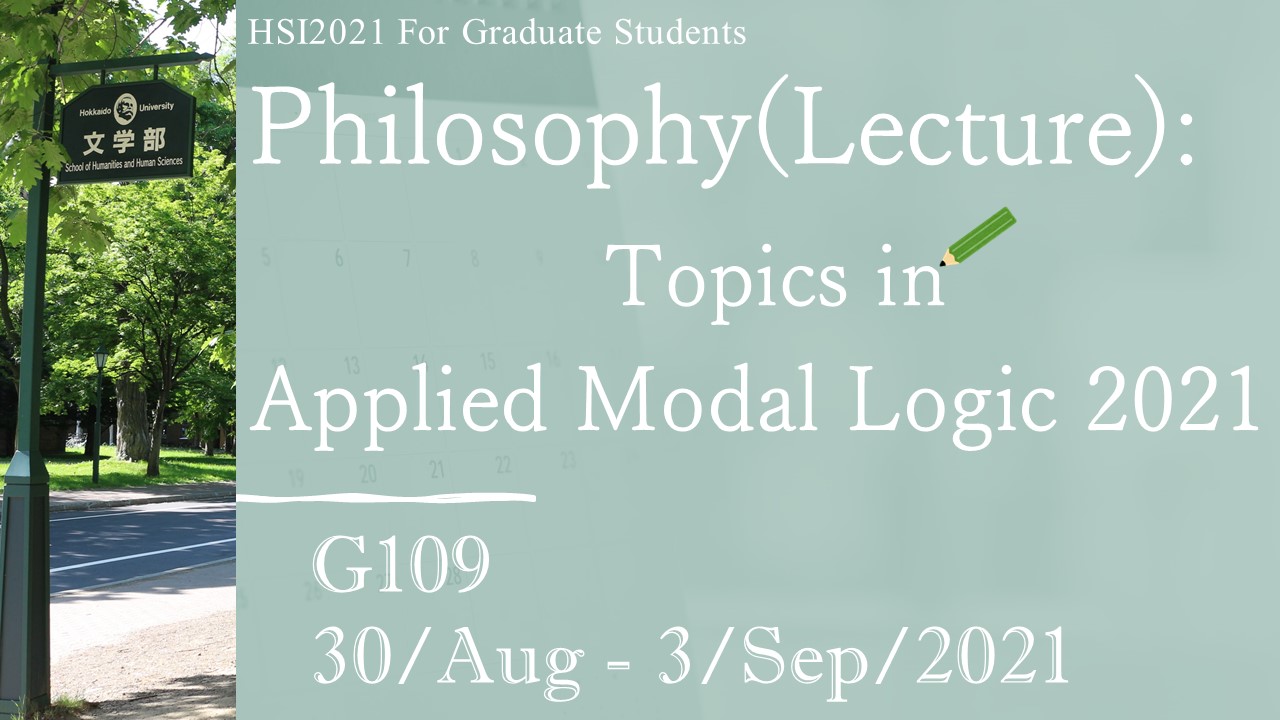
Modal logic can be applied to analyze various phenomena. For example, one of the most well-known applied modal logic is dynamic epistemic logic, which can deals with dynamic changes in the cognitive states of agents brought about by their interactions. We discuss the model updating techniques that make this possible, the resulting logics, and their applications to other branches of logic.
Lecturer
- Associate Professor Katsuhiko SANO
Faculty of Humanities and Human Sciences, Hokkaido University - Senior Lecturer Jeremy Michael SELIGMAN
Faculty of Arts, the University of Auckland, New Zealand - Professor emeritus Tomoyuki YAMADA
Faculty of Humanities and Human Sciences, Hokkaido University
Course Detail
Schedule: 2021 August 30th – September 3rd
Level: Graduate
Credit: 2
Course Format: Online – Live
Outline
The course will introduce theoretical work in modal logic through application to application areas that have proved fruitful in philosophy and related disciplines. Students will acquire a working knowledge of applied modal logic incrementally, by considering the application areas themselves. We start with McTaggart’s argument for the unreality of time, and Arthur Prior’s response to it, as an introduction to tense logic, correspondence theory, bisimulations, and axiomatisation. Then we look at models of belief based on credence, introduce a variety of operators for expressing different ideas about belief update, revision and knowledge. They are expanded to consider social interaction, with a discussion of multi-agent epistemology, concepts of group knowledge, and finally, dynamic epistemic logic. A final section explores application to various topics in formal pragmatics.
Course Goals
- use formal languages of the applied modal logics to describe examples
- derive consequences from the assumptions captured in these languages
- use formal language to discuss various conceptual issues


